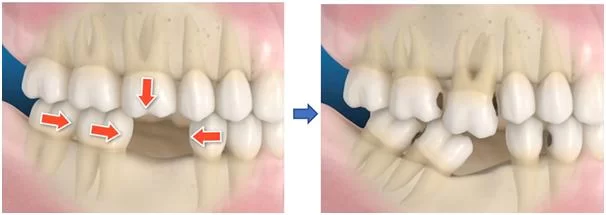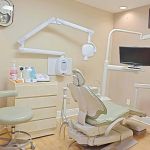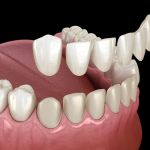
The Dangers of Not Replacing Missing Teeth: Health Risks and Long-Term Consequences
- Why You Should Replace Missing Teeth
- Health Risks of Missing Teeth
- Impact on Your Daily Life
- Oral Health Implications of Missing Teeth
- Dental Solutions for Missing Teeth
- How to Prevent Long-Term Dental Problems
1. Why You Should Replace Missing Teeth
Missing teeth aren't just a cosmetic issue; they can have serious consequences for your oral health. Whether caused by decay, injury, or wear and tear, leaving gaps in your smile can lead to a number of problems that affect both your dental health and overall well-being. Replacing missing teeth is essential to maintain the function of your mouth, improve your appearance, and ensure long-term oral health.
For instance, Maria, a 45-year-old woman, lived with a missing tooth for several years, believing that it didn’t affect her daily life. However, she started experiencing discomfort in her remaining teeth, and her bite became misaligned. After consulting with a dentist, she learned that her missing tooth had caused her other teeth to shift, leading to additional problems that could have been avoided if she had replaced the tooth earlier.
2. Health Risks of Missing Teeth
Not replacing missing teeth can lead to a variety of serious health risks, many of which can be avoided with proper treatment. Here are some of the key health concerns:
- Bone Loss: One of the most significant dangers of leaving missing teeth untreated is bone loss. The jawbone requires stimulation from the roots of teeth to maintain its density. When a tooth is lost, the jawbone in that area begins to deteriorate, leading to further tooth loss and weakening of the structure.
- Shifting Teeth: Missing teeth can cause the surrounding teeth to shift into the empty space. This can lead to bite misalignment, gum issues, and even increased risk of tooth decay or gum disease as plaque can accumulate in harder-to-clean areas.
- Difficulty Eating and Speaking: Missing teeth can affect your ability to chew food properly, leading to digestive issues and poor nutrition. Additionally, speech can be affected as the missing teeth may alter the way your tongue moves.
Tom’s story is a prime example. After losing his molar several years ago, he didn’t think it was necessary to replace it. However, over time, he started to experience jaw pain and found that his remaining teeth were shifting. Eventually, his dentist explained that he was at risk for further tooth loss and recommended replacing the missing tooth to prevent further complications.
3. Impact on Your Daily Life
Missing teeth can have a significant impact on your quality of life, affecting everything from self-esteem to the way you engage in everyday activities. Many people feel self-conscious about their smile and may avoid social situations or even professional opportunities because of their missing teeth.
For example, Sarah, a young professional, was always self-conscious about a gap in her front teeth caused by an accident. She found it difficult to smile in public and felt embarrassed during job interviews, even though her dental health was otherwise fine. After replacing her missing tooth with a dental implant, Sarah not only gained back her confidence but also improved her overall quality of life by enjoying more social interactions and feeling better in professional settings.
4. Oral Health Implications of Missing Teeth
Beyond the aesthetic and functional aspects, missing teeth can have long-term oral health implications. When a tooth is lost, it can lead to several complications:
- Gum Disease: Missing teeth can cause gum tissue to recede, leading to an increased risk of gum disease. This is because the gums lose their proper structure without the support of the teeth, leading to inflammation and infection.
- Temporomandibular Joint (TMJ) Issues: If teeth begin to shift, it can put additional stress on the jaw, causing pain in the temporomandibular joint (TMJ). Over time, this can lead to chronic jaw pain and even headaches.
- Increased Tooth Wear: The shifting of teeth can cause uneven wear on the remaining teeth, potentially leading to additional damage or the need for further treatments.
If left untreated, these issues can exacerbate over time, leading to more extensive and expensive dental treatments. By replacing missing teeth early, these risks can be minimized.
5. Dental Solutions for Missing Teeth
There are several effective solutions for replacing missing teeth, depending on your specific needs and the location of the missing teeth. These include:
- Dental Implants: Dental implants are a popular and long-lasting solution for replacing missing teeth. They involve inserting a titanium post into the jawbone to replace the root of the missing tooth, followed by the attachment of a crown or bridge.
- Dental Bridges: Bridges are used to fill gaps by attaching artificial teeth to adjacent teeth, restoring both function and appearance.
- Partial Dentures: Removable partial dentures are another option for replacing missing teeth, especially for those who have lost several teeth in a row.
Each solution comes with its own set of benefits, and your dentist can help determine which one is right for you based on your unique dental health needs.
6. How to Prevent Long-Term Dental Problems
The key to avoiding the dangers of not replacing missing teeth is to address the issue as soon as possible. Regular dental checkups, good oral hygiene practices, and staying proactive about your dental care can help prevent further complications:
- Regular Dental Visits: Keep up with regular checkups to catch any potential dental issues before they become serious.
- Healthy Eating Habits: Eating a balanced diet that supports your oral health, including foods rich in calcium and vitamin D, can help strengthen your teeth and jawbone.
- Prompt Replacement of Missing Teeth: Don’t wait too long to replace missing teeth. The sooner you address the gap, the better chance you have of preventing long-term complications.
If you're looking for a solution to replace missing teeth, consider exploring options like dental implants and bridges. For more information and to find the right treatment for you, visit Dentistry Toothtruth to speak with a dental expert.







 Coastal Dental Group4.0 (183 review)
Coastal Dental Group4.0 (183 review) Dentistry at 1818 Market Street4.0 (686 review)
Dentistry at 1818 Market Street4.0 (686 review) Bruce E Matthews DDS PA4.0 (201 review)
Bruce E Matthews DDS PA4.0 (201 review) Silvana Cumani DMD & Associates PC3.0 (64 review)
Silvana Cumani DMD & Associates PC3.0 (64 review) Lowery Smiles5.0 (305 review)
Lowery Smiles5.0 (305 review) Tacoma Dental Care, Dr. Thi Truong Nguyen, DMD.5.0 (29 review)
Tacoma Dental Care, Dr. Thi Truong Nguyen, DMD.5.0 (29 review) The Importance of Oral Health Education During Pregnancy for a Healthy Pregnancy
The Importance of Oral Health Education During Pregnancy for a Healthy Pregnancy Best Tips for Brushing Your Teeth Properly for Healthy Gums: Essential Techniques for Oral Health
Best Tips for Brushing Your Teeth Properly for Healthy Gums: Essential Techniques for Oral Health Why Skipping Dental Checkups Can Lead to Bigger Oral Health Problems
Why Skipping Dental Checkups Can Lead to Bigger Oral Health Problems Advantages of Porcelain Dental Restorations
Advantages of Porcelain Dental Restorations How Can Diabetes Cause Tooth and Gum Problems? Preventing and Managing Oral Health Issues
How Can Diabetes Cause Tooth and Gum Problems? Preventing and Managing Oral Health Issues Healthy Habits for Promoting Good Oral Health and Hygiene: Tips for a Healthy Smile
Healthy Habits for Promoting Good Oral Health and Hygiene: Tips for a Healthy Smile